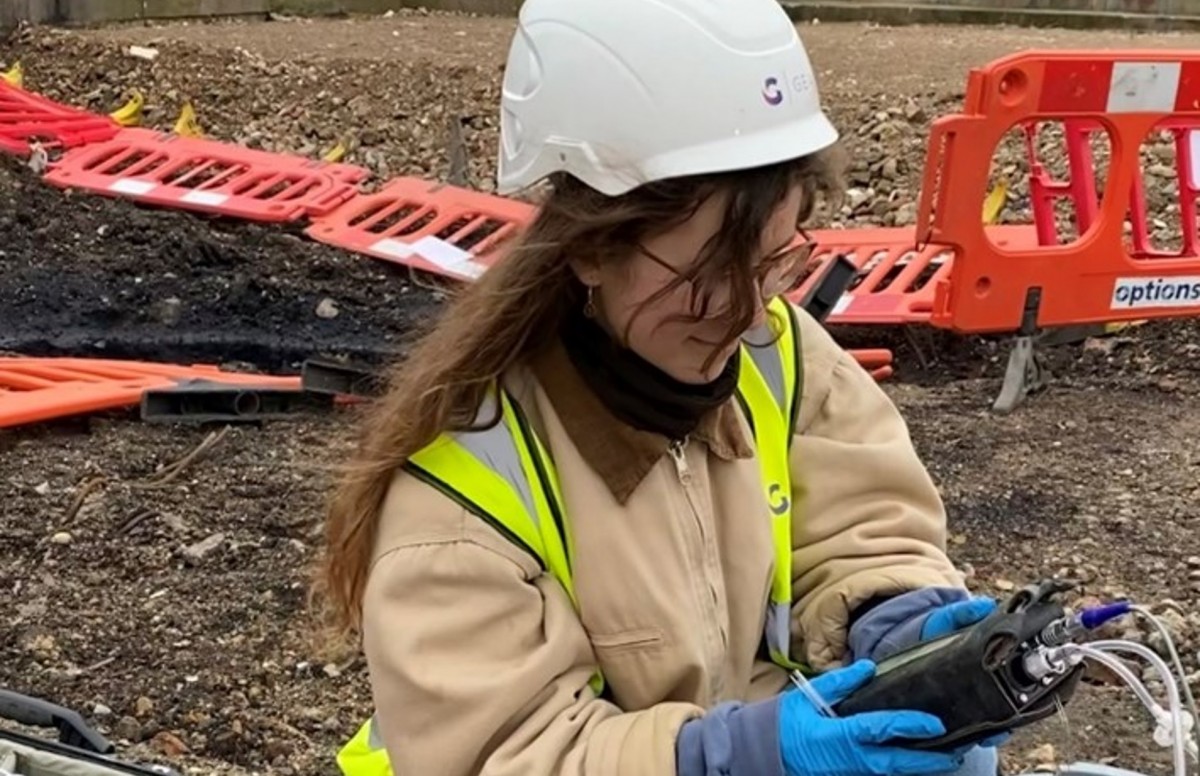Getting My Geotheta To Work
The 7-Minute Rule for Geotheta
Table of ContentsGeotheta for DummiesIndicators on Geotheta You Need To KnowThe Single Strategy To Use For GeothetaUnknown Facts About GeothetaThe Main Principles Of Geotheta

They carry out website examinations, accumulate examples, carry out laboratory examinations, and analyze information to evaluate the suitability of the ground for building and construction projects - Tailings Engineer. Based on their findings, geotechnical engineers provide suggestions for foundation design, incline stability, keeping frameworks, and mitigation of geotechnical dangers. They team up with various other experts, such as engineers, structural designers, and construction groups, to make sure that geotechnical considerations are incorporated right into the overall job style and execution
By examining the behavior and homes of soil and rock, they can recognize potential geotechnical threats such as landslides, dirt negotiation, or incline instability. Their experience helps stop failures or mishaps that can jeopardize lives and residential property. Below are some in-depth duties and duties of a geotechnical designer: Website Examination: Geotechnical engineers conduct site examinations to collect data on subsurface problems.
They translate the data to understand the homes and actions of the soil and rock, including their stamina, permeability, compaction characteristics, and groundwater problems. Geotechnical Evaluation and Design: Geotechnical engineers assess the data collected throughout site examinations to assess the stability and suitability of the site for building projects. They perform geotechnical estimations and modeling to examine variables such as birthing ability, settlement, incline stability, side planet pressures, and groundwater circulation.
Not known Factual Statements About Geotheta
Foundation Style: Geotechnical engineers play a vital role in creating foundations that can safely support the intended structure. They examine the dirt conditions and lots needs to establish the proper foundation type, such as superficial foundations (e.g., grounds), deep structures (e.g (https://telegra.ph/Why-Geotheta-is-Your-Go-To-for-Geotechnical-Engineers-in-South-Africa-08-02)., piles), or specialized techniques like dirt improvement. They take into consideration factors such as settlement limits, birthing ability, and soil-structure interaction to establish optimal structure layouts
They assess building plans, monitor website activities, and carry out field evaluations to verify that the design suggestions are adhered to. If unforeseen geotechnical problems arise, they examine the situation and give suggestions for remediation or changes to the style. Risk Analysis and Mitigation: Geotechnical designers evaluate geotechnical risks and risks associated with the job site, such as landslides, liquefaction, or soil erosion.

Partnership and Interaction: Geotechnical engineers function carefully with other specialists involved in a task, such as engineers, architectural engineers, and building teams. Reliable communication and cooperation are important to integrate geotechnical factors to consider right into the overall project design and construction procedure. Geotechnical engineers supply technological competence, solution queries, and make certain that geotechnical requirements are satisfied.
The smart Trick of Geotheta That Nobody is Discussing
Right here are some kinds of geotechnical designers: Structure Engineer: Foundation engineers concentrate on designing and evaluating foundations for frameworks. They assess the soil conditions, lots needs, and website qualities to figure out the most suitable foundation type and style, such as shallow foundations, deep structures, or specialized techniques like pile structures.
They evaluate the factors affecting incline security, such as dirt buildings, groundwater problems, and incline geometry, and create approaches to avoid incline failings and alleviate risks. Quake Engineer: Quake engineers concentrate on assessing and creating structures to hold up against seismic pressures. They examine the seismic hazard of a site, assess dirt liquefaction capacity, and create seismic design standards to make sure the safety and security and durability of structures throughout quakes.
They carry out field screening, collect examples, and assess the accumulated data to identify the soil buildings, geologic formations, and groundwater conditions at a website. Geotechnical Instrumentation Engineer: Geotechnical instrumentation engineers concentrate on tracking and gauging the habits of dirt, rock, and structures. They mount and preserve instrumentation systems that check variables such as soil negotiation, groundwater levels, incline movements, and architectural displacements to evaluate efficiency and provide very early warnings of possible problems.
Getting My Geotheta To Work
They carry out examinations such as triaxial tests, consolidation tests, straight shear examinations, and permeability examinations to collect information for geotechnical evaluation and layout. Geosynthetics Designer: Geosynthetics engineers specialize in the style and application of geosynthetic materials, such as geotextiles, geogrids, and geomembranes. They utilize these products to enhance dirt security, enhance slopes, offer drain services, and control erosion.
They tend to be investigatory people, which indicates they're intellectual, introspective, and investigative. They are interested, systematic, rational, logical, and sensible. Some of them are additionally social, suggesting they're kind, charitable, participating, individual, caring, useful, empathetic, sensible, and pleasant - Consulting Engineers.
In the workplace setting, geotechnical engineers make use of specialized software tools to execute calculations, develop styles, and examine information. They prepare reports, evaluation job specifications, communicate with customers and employee, and coordinate task activities. The office setup gives a favorable atmosphere for research, evaluation, and partnership with various other specialists associated with the job.
Some Ideas on Geotheta You Need To Know
They often visit job websites to perform site investigations, evaluate geotechnical problems, and collect information for evaluation. These sees entail taking a trip to different locations, sometimes in remote or difficult surfaces. Geotechnical designers might perform dirt sampling, conduct tests, and screen construction activities to guarantee that the geotechnical facets of the job are being executed correctly.
Geotechnical designers also operate in specialized geotechnical research laboratories. In these centers, they conduct experiments, do examinations on dirt and rock examples, and analyze the engineering residential or commercial properties of the products. Geotechnical lab engineers function extensively in these environments, dealing with testing equipment, go to this web-site operating instruments, and videotaping information. They team up with various other lab team to make certain precise and reliable screening outcomes.